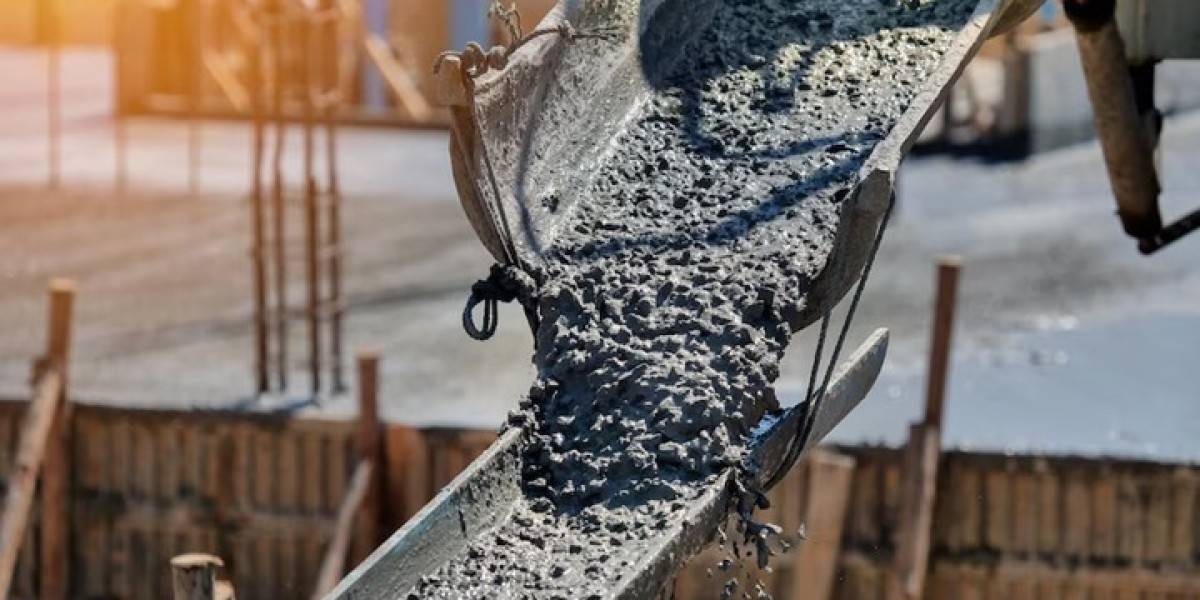In the bustling construction landscape of London, the success of any project, from a modest garden shed base to a multi-story commercial development, hinges significantly on the quality and timely delivery of materials. When it comes to concrete, choosing a reliable ready mix concrete supplier is paramount. A poor choice can lead to compromised structural integrity, costly delays, increased labour, and frustrating rework.
With numerous suppliers operating in and around the M25, navigating the options can feel overwhelming. This guide provides a comprehensive checklist of key factors to consider, empowering you to make an informed decision and secure a supplier that truly meets the demands of your London-based project.
1. Quality Accreditations and Standards: The Non-Negotiables
This is your first and most critical filter. Reputable suppliers prove their quality through independent certification.
BSI Kitemark / CE Marking: Look for concrete that is BSI Kitemark certified and carries the CE mark. These signify that the concrete consistently meets stringent British Standards (BS EN 206 and BS 8500 parts 1 & 2) for strength, durability, and production quality, verified through regular independent audits. This is especially crucial for any structural concrete where compliance with building regulations is essential.
ISO 9001: This accreditation indicates a robust Quality Management System within the company, demonstrating a commitment to consistent processes and customer satisfaction.
Industry Memberships: Membership in associations like the Mineral Products Association (MPA) or the British Ready-Mixed Concrete Association (BRMCA) often indicates a commitment to best practices, safety, and industry standards.
2. Reputation and Experience: Trust and Track Record
A supplier's history speaks volumes about their reliability.
Online Reviews and Testimonials: Check independent review platforms (Trustpilot, Google Reviews, Checkatrade) as well as testimonials on their website. Look for consistent positive feedback regarding punctuality, concrete quality, customer service, and problem resolution. Pay attention to recent reviews.
Years in Business: An established company with many years of operation in London usually signifies reliability, experience in navigating local challenges, and a proven ability to deliver consistently.
Portfolio/Case Studies: Ask about or review their past projects, particularly those similar in scope or complexity to yours. Experience with London-specific challenges (e.g., basement pours, high-rise construction, restricted access) is a significant plus.
References: For larger projects, don't hesitate to ask for references from previous clients.
3. Delivery Capabilities and Logistics Expertise
London's unique urban environment demands exceptional logistical prowess from a concrete supplier.
Proximity of Batching Plants: A supplier with multiple strategically located batching plants around London will generally offer faster delivery times and be better equipped to handle unexpected traffic or urgent requests. This is crucial given concrete's limited working life.
Fleet Size and Condition: Inquire about the size and diversity of their mixer truck fleet (e.g., 6m³, 8m³, 10m³). A larger, well-maintained fleet indicates capacity to handle multiple simultaneous deliveries and reduces the risk of breakdowns. Clean, well-kept trucks often reflect a company's overall professionalism.
Delivery Options and Flexibility:
Same-Day/Next-Day Delivery: Crucial for urgent needs. Confirm their ability to provide this service and their typical lead times.
Timed Deliveries: Can they guarantee specific time slots to help you manage your site schedule?
Out-of-Hours Delivery: If your project requires night or weekend pours (common in busy London areas), confirm their ability to deliver during these times.
Concrete Pumping Services: Many London sites have restricted access. Can the supplier (or their trusted partners) arrange concrete pump hire (boom or ground line) if direct chute access is not possible? This is a vital service in urban environments.
Traffic Management Knowledge: Do they demonstrate a clear understanding of London's traffic patterns, congestion charge, ULEZ, and specific road restrictions that might affect delivery?
4. Range of Products and Technical Expertise
Your project may require more than just standard concrete.
Variety of Concrete Grades: Do they offer a full range of concrete grades (C10, C25, C35, C40, etc.) and specialist mixes (e.g., self-compacting, fibre-reinforced, waterproof)?
Admixtures: Can they incorporate a variety of admixtures (e.g., retarders for hot weather, accelerators for cold, plasticizers for workability, air-entraining agents for frost resistance) to tailor the concrete to your specific project and weather conditions?
Technical Support: Do they have a knowledgeable technical team who can advise on the best concrete mix for your specific application, exposure class, and project requirements? Can they help with volume calculations?
5. Pricing, Transparency, and Value for Money
While price is a factor, it should not be the sole determinant.
Clear Quoting: Request detailed, itemised quotes. Understand what's included (concrete per m³, delivery charges, waiting time, pump hire, admixtures, minimum order fees).
Payment Terms: Clarify payment terms, especially for short-notice or smaller orders.
"Only Pay for What You Use" (Volumetric Mixers): Some suppliers offer volumetric mixers that mix concrete on-site, meaning you only pay for the exact quantity used, reducing waste. Others deliver pre-batched concrete, often with minimum order quantities. Understand the difference and which suits your project size.
Value vs. Cost: Remember that the cheapest option may not always be the best value. Delays, poor quality, or unreliable service from a cheaper supplier can quickly outweigh any initial cost savings.
6. Customer Service and Communication
Good communication can make or break a project, especially when issues arise.
Responsiveness: How quickly do they respond to inquiries and provide quotes?
Problem Resolution: Do they have a clear process for handling issues (e.g., late deliveries, quality concerns)?
Proactive Communication: Do they proactively update you on delivery status or potential delays?
Professionalism: Assess the professionalism and helpfulness of their sales, dispatch, and delivery staff.
Conclusion: Investing in Reliability
Choosing a reliable ready mix concrete supplier in London is a strategic decision that directly impacts the efficiency, quality, and ultimate success of your construction project. By meticulously evaluating potential suppliers against these key criteria – focusing on their accreditations, reputation, logistical capabilities, product range, value proposition, and communication – you can build a strong partnership that ensures your concrete needs are met with precision, reliability, and peace of mind. Investing time in this selection process will undoubtedly pay dividends in the long run.






